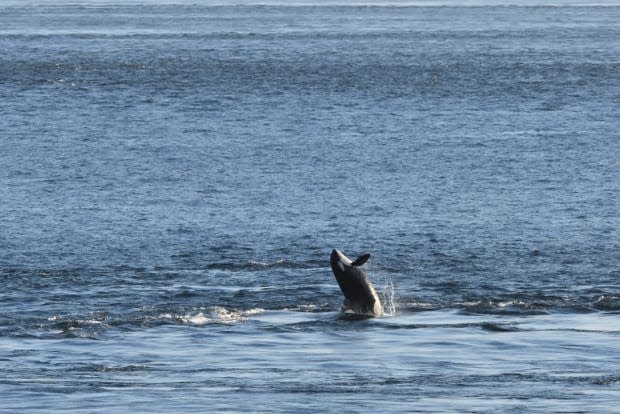Southern resident killer whales spotted after prolonged absence

More than 50 southern resident killer whales, including whales from all three local pods, were spotted Tuesday in Haro Strait.
The sighting marked the end of an unprecedented 108 day hiatus in sightings of J pod, who was last seen in the area April 10.
The only sighting this summer was a one day visit from members of K pod on July 1. L pod whales had not been seen since February.
The southern resident orcas have been designated endangered since 2005 under the federal Endangered Species Act.
The absence is highly unusual, according to Monika Shields, the director of the Orca Behaviour Institute, with April to September typically the peak season to see orcas in the area.
Shields said the orcas are usually present on a near daily basis this time of year. However, their presence in the area has been declining over the past few years.
"It's like reuniting with old friends. These are whales that we know very well… for them to have been absent so long during what is usually the peak season to see them is tough for sure."

Shields explained that the orcas often gather in the summer months as a "super pod." They believe this is when most of the breeding happens.
"We really think the Salish Sea might be a very culturally important area for them."
Declining salmon population
Shields believes the absence is due to the dwindling chinook salmon runs returning to the Fraser River, forcing the whales to go elsewhere for food.
The whales were spotted in June and July spending time on the outer coast of Vancouver island, where they can intercept salmon returning to a wider geographic area rather than just those salmon heading up the Fraser River.
Shields said the decline in salmon also has implications for other species that rely on it as their main source of prey.
"To help the southern residents recover we need to focus on recovery of wild salmon … it's a complex issue and will take a lot of community effort to take some real action."
Spotted in the group was L125, a calf that was born earlier this year, looking healthy and active, according to Shields.
"It was a pretty magical moment where the fog parted just as the whales were coming across the strait."

